This dictionary will contribute to enhancing political , economic and cultural exchanges and understanding between Vietnam and Brazil and Portuguese-speaking countries.
On September 6, in Hanoi , the Vietnam-Brazil Friendship and Cooperation Association, a member of the Vietnam Union of Friendship Organizations, held a launching ceremony for the Portuguese-Vietnamese dictionary (Portuguese-Vietnamese Dictionary).
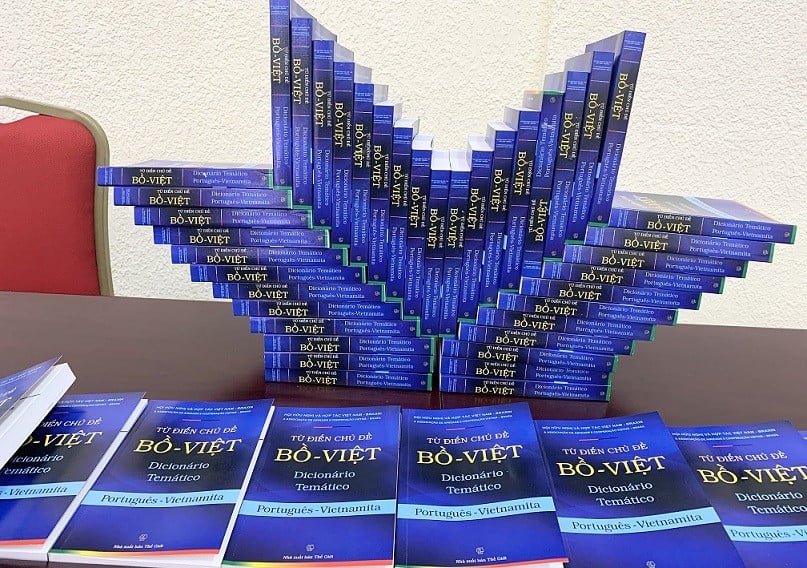 |
| The Portuguese-Vietnamese dictionary published by The Gioi Publishing House was reintroduced at the launching ceremony. (Photo: Le An) |
Attending the ceremony were Ambassador Nguyen Phuong Nga, President of the Vietnam Union of Friendship Organizations; Mr. Marco Farani, Ambassador of Brazil to Vietnam; Mr. Nguyen Van Lang, President of the Vietnam-Brazil Friendship and Cooperation Association and representatives of the Central Propaganda Department, Ministry of Foreign Affairs, Ministry of Home Affairs, Ministry of Culture, Sports and Tourism... and representatives of research institutes, enterprises, and socio-political organizations in Vietnam.
According to Dr. Nguyen Van Lang, Chairman of the Vietnam-Brazil Friendship and Cooperation Association, Portuguese is used in 8 countries and territories, with about 280 million users, and is the 6th most popular language among the 10 most popular languages in the world.
However, this language barrier has hindered the peaceful, friendly, united, people-to-people exchange and mutually beneficial cooperation between Vietnam and Brazil - an important partner of Vietnam in Latin America.
| Currently, the teaching and learning of Portuguese in Vietnam is still quite modest. The only publications for teaching and learning Portuguese are the “Portuguese-Vietnamese Dictionary” published internally for the purpose of labor export by the Federation of Technical Cooperation and Experts with Foreign Countries – Hanoi Foreign Language Training Center in 1989 in small quantities. |
Therefore, the Vietnam-Brazil Friendship and Cooperation Association has taken the lead in building this dictionary to contribute to enhancing exchanges and mutual understanding of politics, economics and culture between Vietnam and Brazil in particular and Portuguese-speaking countries in general.
Accordingly, the Association has mobilized and gathered Portuguese language teaching and research staff at universities, diplomatic agencies, and various organizations into an editorial group.
During the process of building the dictionary, the Association received support from many agencies, departments, and organizations, both spiritually and materially, especially the Brazilian Embassy in Vietnam.
Associate Professor, Dr. Vu Kim Bang, Head of the Drafting Committee, also said that the Portuguese-Vietnamese Dictionary was created to meet the needs of many people who love and want Portuguese to be widely spread and used in Vietnam.
The book is compiled using the latest materials and methods, aiming to serve both the learning and teaching of Portuguese in Vietnam and to provide practical assistance to Vietnamese people who want to work, trade, visit, travel, etc. in Portuguese-speaking countries.
The Portuguese-Vietnamese Subject Dictionary is a basic Portuguese teaching book for Vietnamese people, with a three-part structure, as follows: Part one provides an overview of the phonetic, morphological and syntactic characteristics of Portuguese and the community of Portuguese-speaking countries worldwide. This section helps readers have the most general knowledge about the typological characteristics of Portuguese, a language belonging to the Romance branch of the Eurasian language family. On the other hand, readers also have an outline of the distribution of Portuguese-speaking countries in the continents of the world. Part two of the dictionary is compiled with 17 communication topics related to the most essential issues of political institutions, socio-economics and cultural life. Each topic has a tight structure, arranged in scientific order. The topics are selected based on the principle of practical application for users. People who go to work or travel can immediately apply the Portuguese dialogues, words and phrases in each topic to real communication situations. Part three presents the Basic Portuguese-Vietnamese Vocabulary table with about 15 thousand common words and phrases with necessary examples suitable for the context of use, helping readers to look up and grasp the meaning of the necessary words. |
Source


![[Photo] Welcoming ceremony for Prime Minister of the Kingdom of Thailand Paetongtarn Shinawatra on official visit to Vietnam](https://vphoto.vietnam.vn/thumb/1200x675/vietnam/resource/IMAGE/2025/5/16/cdd9e93739c54bb2858d76c3b203b437)

![[Photo] Prime Minister Pham Minh Chinh holds talks with Prime Minister of the Kingdom of Thailand Paetongtarn Shinawatra](https://vphoto.vietnam.vn/thumb/1200x675/vietnam/resource/IMAGE/2025/5/16/23b5dd1e595d429491a54e3c1548fb79)
![[Photo] The Prime Ministers of Vietnam and Thailand witnessed the signing ceremony of cooperation and exchange of documents.](https://vphoto.vietnam.vn/thumb/1200x675/vietnam/resource/IMAGE/2025/5/16/935407e225f640f9ac97b85d3359c1a5)






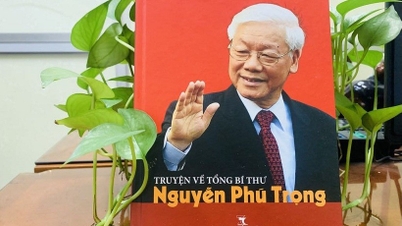


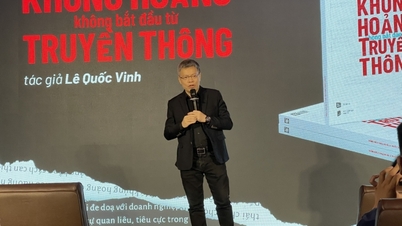

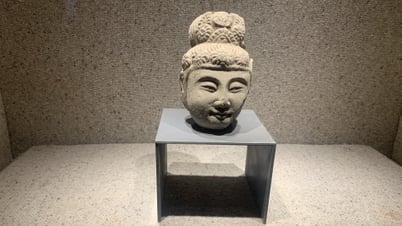













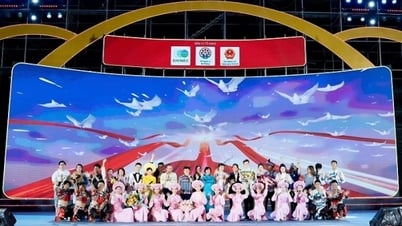

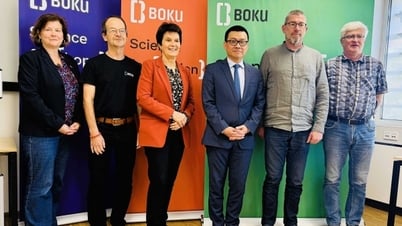










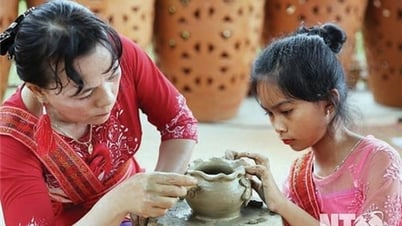

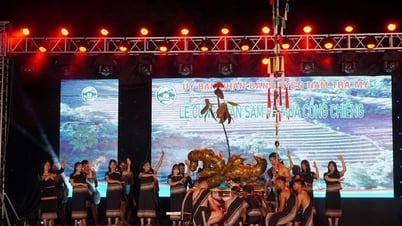






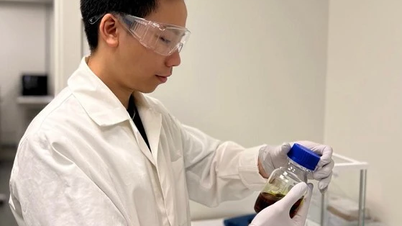
















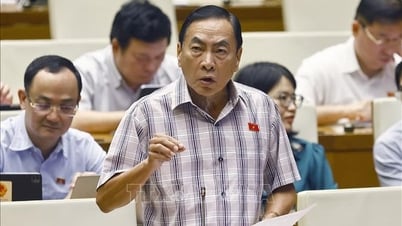
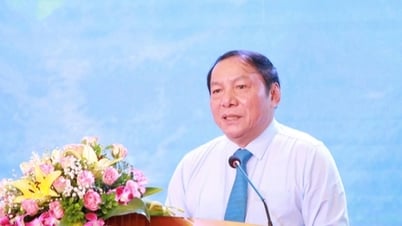


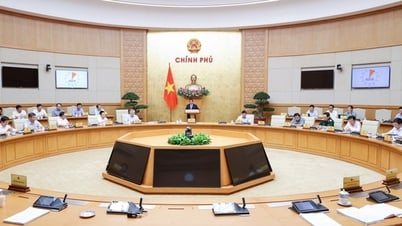
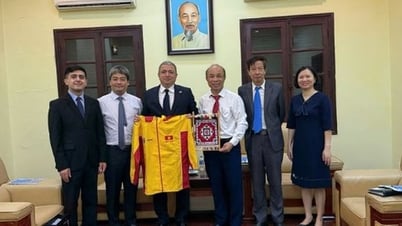
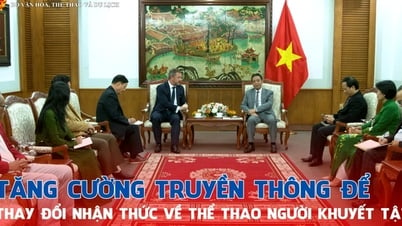
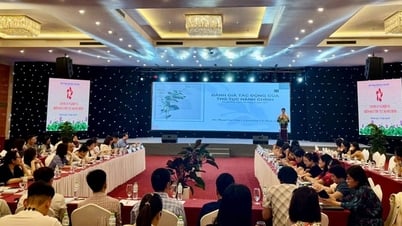
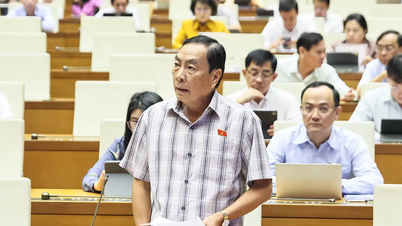
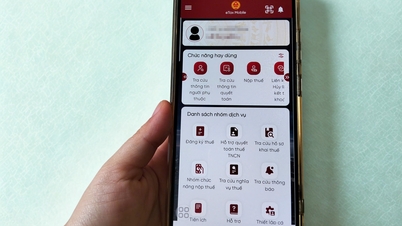

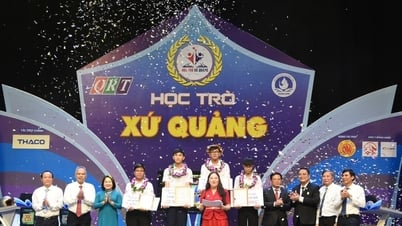




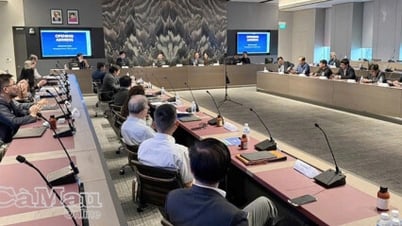










Comment (0)